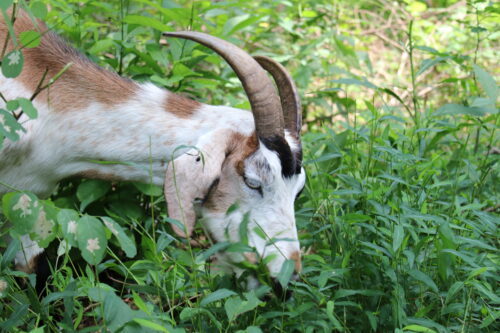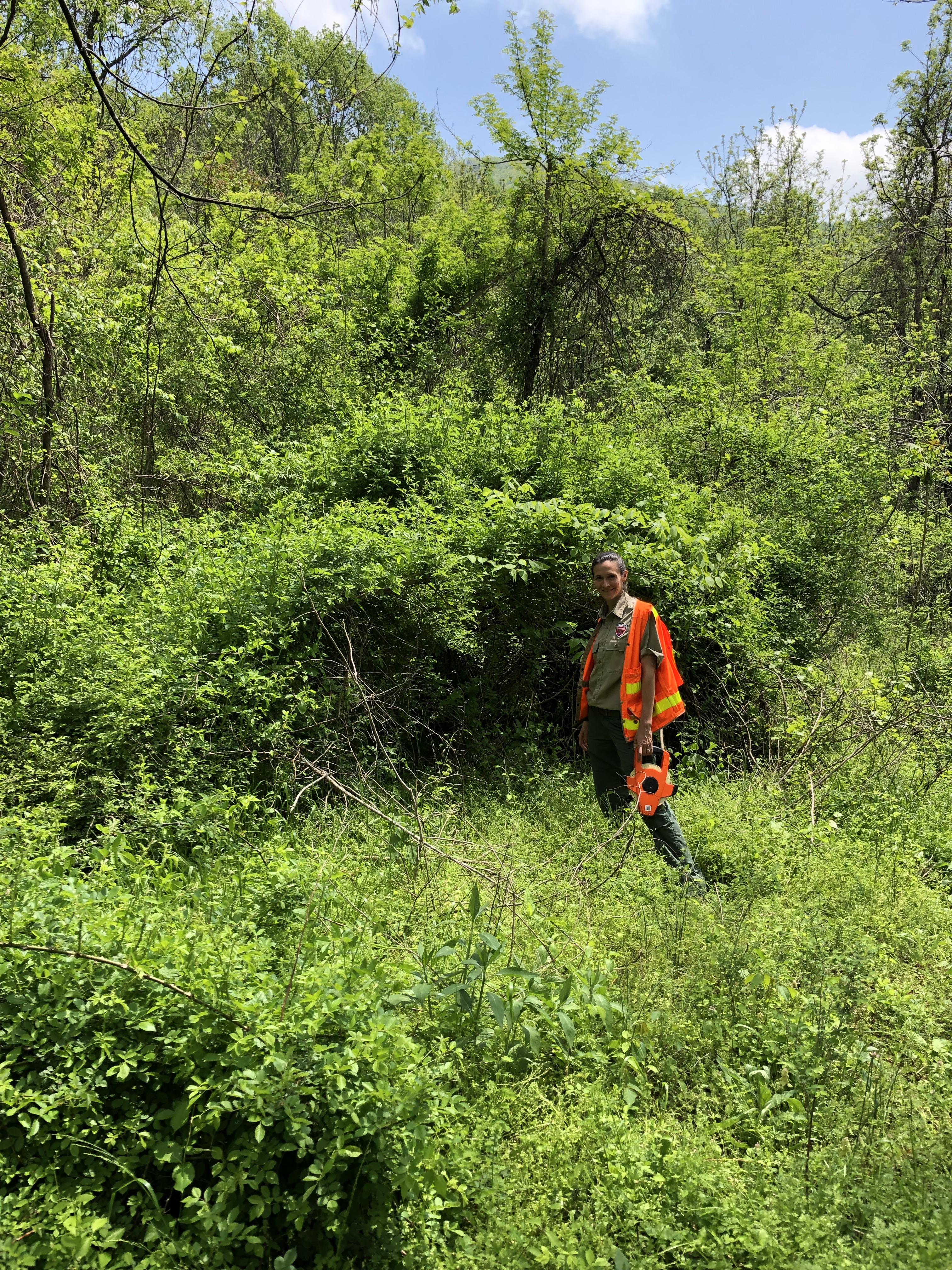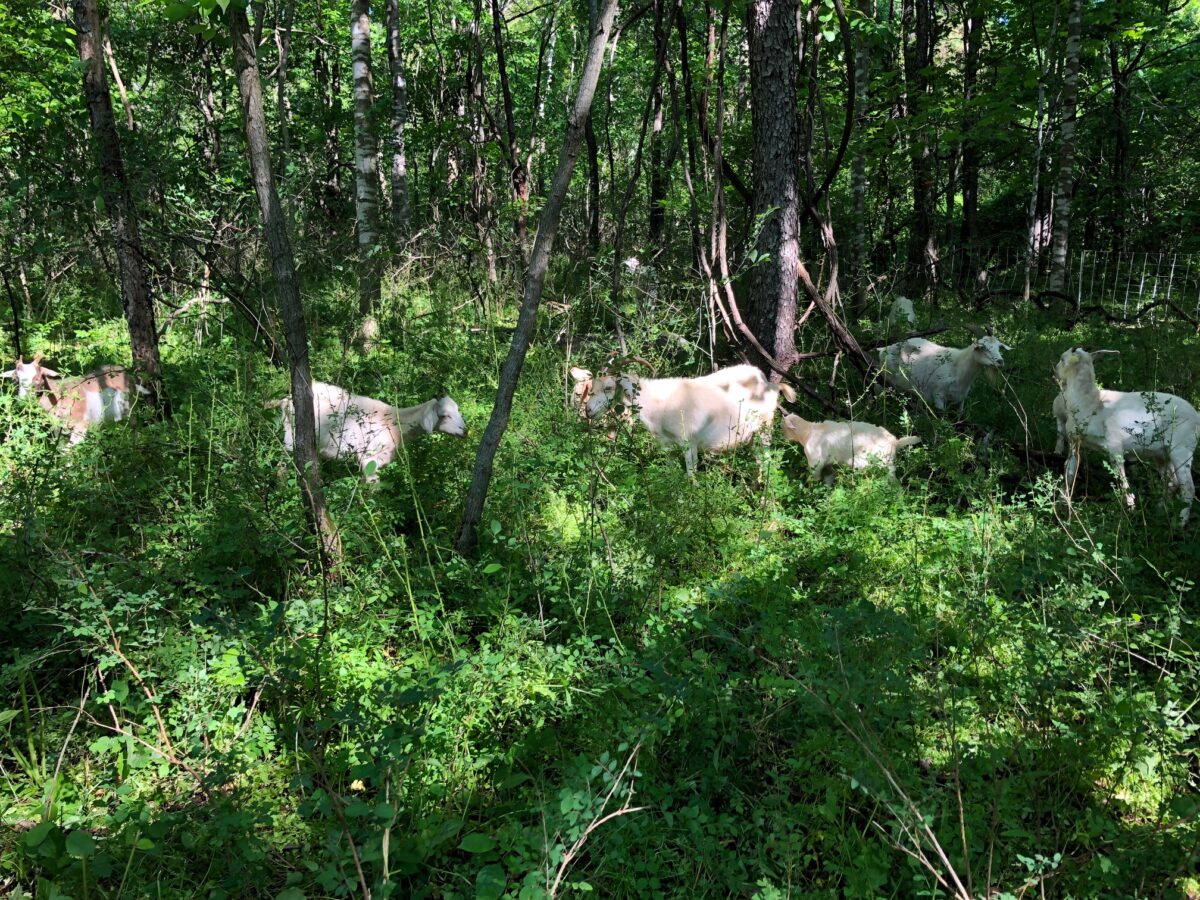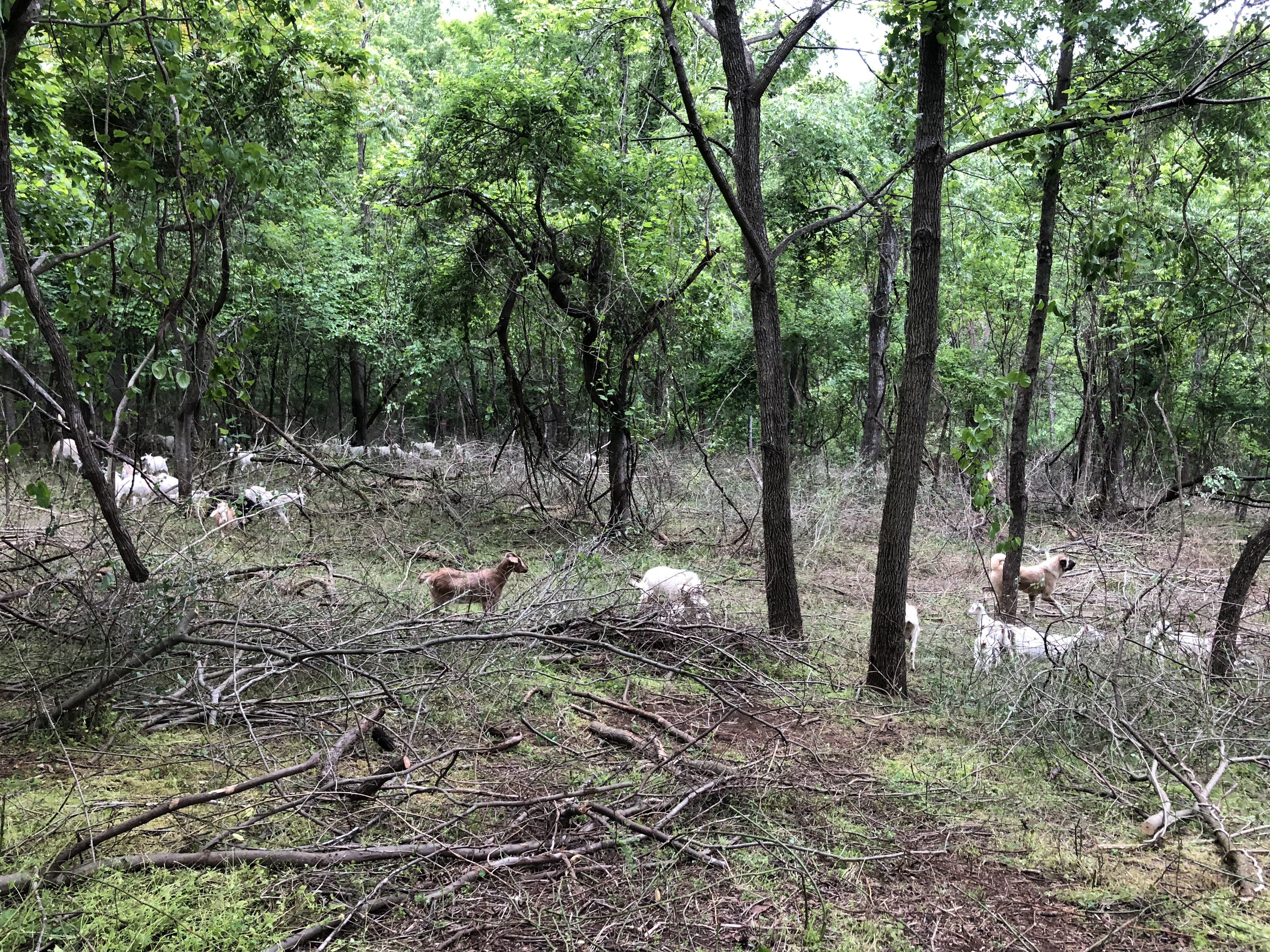Field Notes: Goodness Gracious Goats!
October 9, 2019 5:00 pm

by DOF Forest Health Specialist Katlin Mooneyham
Our DOF Forest Health Program staff are often asked how to control certain invasive plant species. Most recommendations involve spraying or applying chemicals since that is often the easiest and most practical way for people to remove these plants. However, there are times when landowners and citizens are not interested in herbicides and ask for other recommendations.
One alternative option that is gaining in popularity is the use of goats to graze invasive species down to a more manageable scale. Goats are well suited to grazing plants not typically eaten by other animals because they have the ability to consume woody plants and weeds. They are also able to eat plants toxic to other animals due to the ability to detoxify absorbed anti-nutritional factors.
The DOF Forest Health Program decided to test this invasive plant removal method and identified Lesesne State Forest as the perfect location due to the amount of problematic plants on the forest. A four-acre section of woods within the forest was selected to be a test area where it could fully be grazed by goats.

DOF Forest Health Program Manager Lori Chamberlin next to a large multiflora rose bush at Lesesne State Forest.
The company GoatBusters, based in Afton, VA, was available and ready to help DOF with this project. The father/son duo, Jace and Clark Goodling, have a herd of Kiko goats that they utilize on a variety of landscapes to remove invasive species. A grand total of 90 goats went out in mid-May for 13 days! Accompanying the goats were two Anatolian shepherds that acted as guard dogs to prevent other animals from making a snack out of the workers! The goats were kept in one small (~ an acre) subsection at a time so that there would always be high grazing pressure. Once a section was grazed down, the fencing and goats would move to the next spot and grazing would continue. After the goats were well fed and done with the four-acre study area, they were removed. The area looked completely different! Many of the invasive plants in the study area were stripped of their foliage and some were completely consumed all the way to the ground! It is important to note that while the goats had an impressive immediate effect, there will need to be some sort of secondary treatment on the land as these invasive plants are prolific and re-sprout easily. Various follow-up treatments were conducted and a more comprehensive report with those results will be available on the DOF website soon!

Goats arrive.

Goats depart. Quite the difference!
To summarize, there is no silver bullet that can be used against invasive plant species. Whatever treatment is utilized will require follow-up of some sort. The goats are an amazing resource to start fresh in areas that are completely inundated with invasive plants and may not even be accessible for chemical treatment. By allowing these animals to graze an area down, follow-up chemical treatments are easier and more targeted. The ability to start with a “clean slate” is not only more aesthetically pleasing, but also enables invasive plant control with less overall herbicide.
Tags: Invasive Species, Pest Management
Category: Forest Health, State Forests